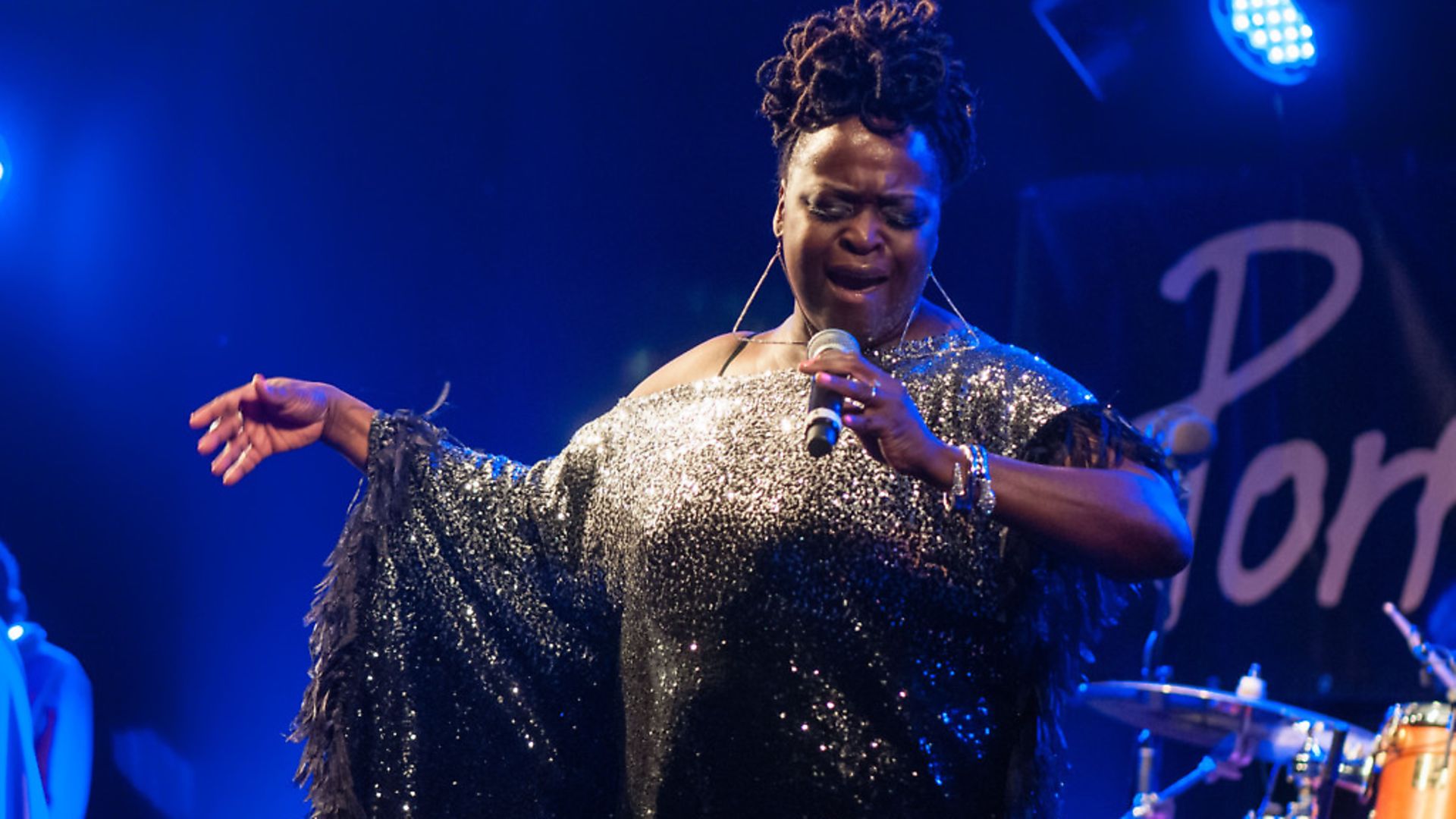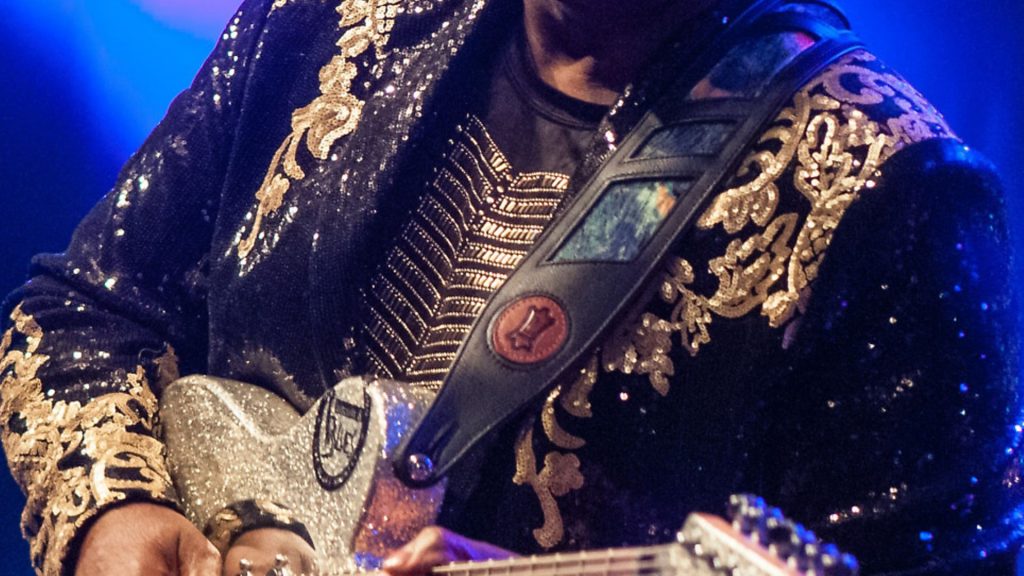
Southern soul may have lost its lustre in the States but it has found a home in northern Italy. GARTH CARTWRIGHT reports.

In the mountains south west of Bologna sits a sleepy town called Porretta Terme. Most of the time it is noted for nothing more than its thermal waters – pensioners head here for the spas – but once a year the town becomes the epicentre of Southern soul music.
The Porretta Terme Soul Festival is held annually on the third weekend of July. To say it transforms the town is an understatement. Suddenly music is everywhere, people are dancing in the streets, every hotel room has been booked months ahead, and a mix of accents reveal that British, Dutch, French, Japanese, Australasian and more are here. Alongside plenty of Americans, both performers and fans.
It is one of those cultural paradoxes that finds this small Italian town hosting a festival devoted to a music form that took shape in the segregated US South from the mid-1950s through to mid-1970s – soul being a gospel-infused outgrowth of blues that gained huge international popularity until decimated by disco – and is now largely ignored back home.
Not that such indifference is anything new: veteran African American jazz and blues musicians, their lustre waning in the States, started settling in or working regularly across Europe after the Second World War. Soul music, having influenced everyone from The Beatles and The Rolling Stones (both of whom covered many a soul tune) through to Amy Winehouse and Adele, continues to command loyal European audiences. Indeed, the UK hosts many small soul festivals across the year, although these are largely Northern soul events.
Northern soul focuses on the music that came out of Detroit in the 1960s, especially that city’s uptempo Motown sound, and these festivals are DJ-oriented. Southern soul, on the other hand, is based around emotionally intense, gospel-infused ballads that Memphis’ Stax Records gave the world via Otis Redding, Booker T & the MGs, Sam & Dave, Carla Thomas and many others.
Porretta focuses on Southern soul and is all about live performances: the festival takes over the town’s amphitheatre for four nights alongside free stages in the historic pedestrian zone (here both local and international soul-influenced bands play during the daytime) and turns the town centre into a party venue. This being Italy, the fast food on offer involves barbecued squid and exceptional local cheeses, while there’s no sign of the kamikaze hedonism accompanying many UK festivals.
The artists performing this year ranged from the extremely obscure – Memphis’s Booker Brown admitted that his visit to Porretta was not only his first time in Europe but the first time he’d ever been on a plane – through to the likes of Don Bryant and Swamp Dogg, both of whom command international fanbases.
The festival has existed for almost 30 years and is so imprinted on the town’s character that Porretta is now home to Solomon Burke Bridge, Otis Redding Boulevard and Rufus Thomas Park.
How exactly an obscure Italian town came to host the world’s foremost soul festival is down to one man’s determination and passion. Graziano Uliani, a dapper 70-year-old, is everywhere over the weekend, always affable and unflappable, akin to Glastonbury festival’s Michael Eavis in the way he appears as admired as the musicians he books.
‘I do the festival because I am a lover of soul music,’ says Uliani, ‘ever since I first heard Otis Redding in the 1960s. I was working for the Yellow Pages, rather than in the music industry, when I met Solomon Burke in Zurich and told him I was president of his Italian fan club. It was a lie, but he then announced on stage that night that he was going to go to Italy to do a concert – that I would organise. I was very embarrassed.
‘Back in Italy I got to know the rock star Zucchero’s people and suggested they bring the Memphis Horns out to play with Zucchero when he records rhythm and blues. This went well so I got to know an Italian TV channel and suggested they bring Solomon out for a concert. They did and it was a big success, and to say ‘thank you’ to me Solomon came and sang in a hotel in Porretta.
This was in November 1987. I then went to America and met many musicians, including Otis Redding’s family, and told them I wanted to honour the 20th anniversary of Otis’s death in Italy with a concert. I got Italian TV to pay for the flights and we did so. Then, in 1990 I held the first real Porretta Southern Soul festival.’ Uliani emphasises that the festival succeeded because he never treated it as a commercial venture – he continued to work for Yellow Pages for several years – and because the neglect soul gets in the US meant Porretta thrived as both musicians and fans clamoured to attend.
‘In the US, black music is now hip-hop and the pop R&B singers. The classic Southern soul music is ignored. Even if you go to see some of these singers in Memphis you will not experience them with a band like we have here.’
Indeed, Oakland’s Anthony Paule Soul Orchestra features four horn players and three backing vocalists alongside drums-bass-guitar-organ so creating a huge swell of sound. Both the regional government and the mayor of Porretta help fund the festival and its success means Uliani now takes a slimmed-down lineup to Vergato (another northern Italian town) for a one-day concert and then to Las Palmas in Gran Canaria the following weekend.
‘People love soul music,’ says Uliani of his festival’s success, ‘and the artists love to come here and perform.’ This is certainly true with many of the veteran singers holding court with fans at local bars until dawn.
That black musicians are so appreciated in parts of Europe with almost no ethnic minority communities – especially in an Italy now actively engaged in halting refugees from Africa landing – might appear something of a contradiction but no one at Porretta is discussing politics.
One of the festival’s younger singers, Terrie Odabi, sang a powerful original called Gentrification Blues ‘about what’s happening in my hometown of Oakland’, but no mention was made of Donald Trump or the new Italian government.
‘Soul music brings people together,’ says Uliani. ‘It doesn’t divide.’ Well, not these days: in the 1960s soul was the soundtrack to the Civil Rights movement and had its finger on black America’s pulse. Today, that task is left to rappers while the soul veterans focus on singing about love and lust.
Italy is not only home to the world’s foremost soul music festival but is also where the largest reggae festival, Rototom Sunsplash, started out a quarter century ago. Originally held in northern Italy, Rototom was forced to shift to Spain (Benicassim, north of Valencia) several years ago after Italian authorities took a dim view of the vast marijuana consumption accompanying the week long festival (August 16-22, 2018).
Uliani smiles when I mention Rototom. It is, he notes, aimed at a much larger and younger audience than Porretta. Beyond that, he wishes them – and anyone who loves music so much they want to engage in the crazy endeavour of organising a festival – well.
‘In these difficult times,’ he says, ‘it’s good that music brings all kinds of people together. This makes me happy.’









